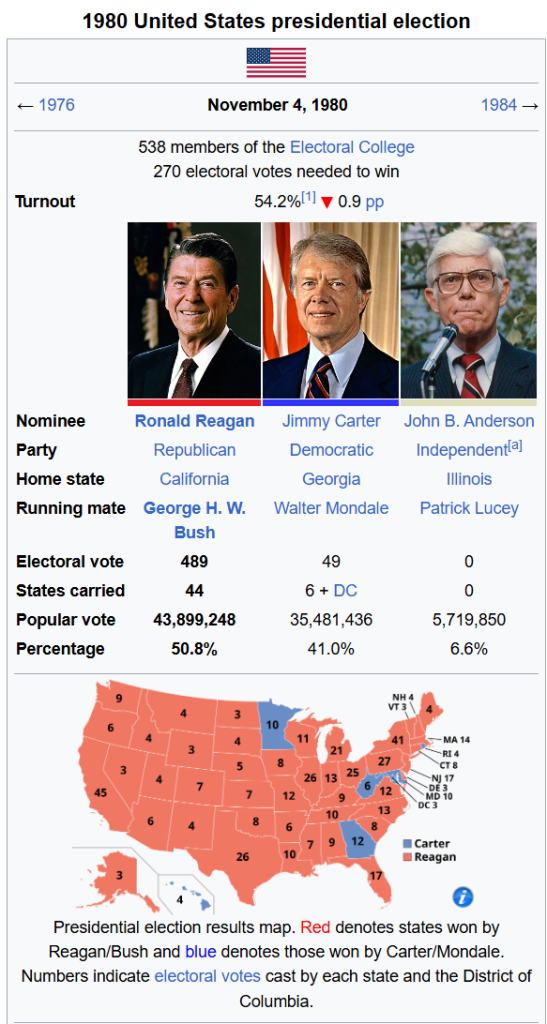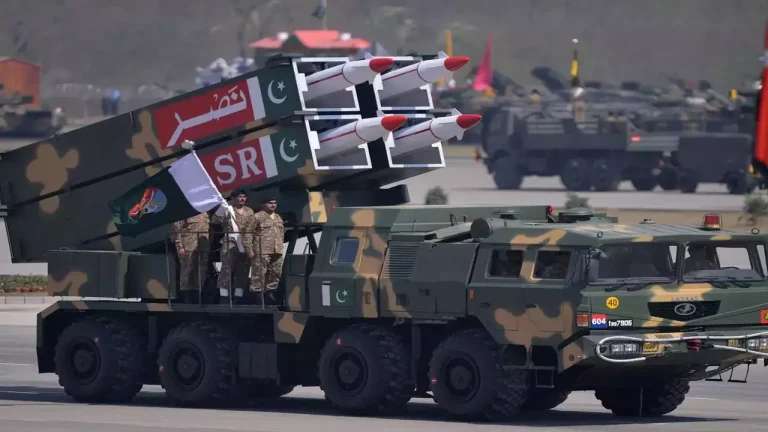It’s starting to become an open secret. Iran likely has nuclear warheads in its arsenal.
“You can fool some of the people all of the time, and all of the people some of the time, but you can not fool all of the people all of the time.”
– Abraham Lincoln
This is a developing article.
One has to ask, what would motivate the same President that pulled the US out of the nuclear agreement with Iran in 2018 into negotiating another agreement?
And what would cause the change of heart for Saudi Arabia’s monarchy to encourage a deal be made now?
The ruling Prince Mohammed bin Salman Al Saud, is no stranger to confrontation within his borders, nor outside them. Taking a different approach to royal relations than his father, he initiated a purge in 2017 that saw the arrest and detention of hundreds of royal relatives and powerful Saudi businessmen. He has even become engaged in seemingly direct confrontation with Iran that resulted from his desire to control Yemen by crushing the Iranian backed Houthi rebels.
And yet, here we are. The very same President that withdrew the US from a nuclear agreement, now negotiating another nuclear agreement.
How Could This Happen?
One of Iran’s strongest allies is it’s nuclear armed neighbor, Pakistan.
Pakistan has been finding itself falling out of favor in the United States’ regional agenda, while facing its main rival, India, in tit-for-tat confrontations that risk escalating into an all out war.
Pakistan’s nuclear arsenal serves as a powerful deterrent to its neighbor and fellow nuclear power, India, however, the concept of mutually assured destruction (MAD) is surely not lost on Pakistan. The nation understands that a war with India will have to be fought using conventional weaponry and military strategy; the type of weaponry and military support that it can only count on Iran to replenish the supply of in the midst of war.
And so, by selling the warheads to Iran, Pakistan ensures that its greatest ally will be there to support it, should it find itself at war with India.
Israel’s Stance
If Iran is now a nuclear armed nation, then why is Israel’s position that we should still strike Iran?
Israel likely does not believe that Iran would dare strike with nuclear warheads, lest the Iranians wish to ensure their own demise. Israel’s gripe with Iran stems from the Mullahs’ desire to wage a war for hearts and minds across the Islamic world, that sometimes culminates in a commotion that unfolds at Israel’s doorstep.
At a time that Saudi Arabia and Turkey have turned a blind eye to the expectations set upon them to protect Sunni Muslims from Israel’s oppression, the Shia Muslims from Iran have stepped up to fill the void as Palestine’s sole defender. All the better for Iran, as it helped to offset the ill-will of Sunni Muslims that became entangled in a bitter civil war with Iran’s deposed ally, Bashar al-Assad, in Syria.
The Syrian civil war was likely exploited, if not engineered, by Israel’s IDF command, as part of its strategy that seeks to break its adversaries into fragmented pieces engaged in an endless civil war. This strategy had been expressed around 2009 by Israel’s top brass in an Israeli publication’s article that seems to have disappeared off the web. The article discussed lessons learned from previous failed uprisings in adversarial states and the resulting military philosophy, which can be summarized as follows:
- When opportunity presents itself (such as an uprising), Israel must be prepared to act upon the opportunity and, specifically noting, to not allow it to go to waste.
- A country at war with itself, cannot be at war with Israel.
And so, Barack Obama, who found himself in a constant balancing act with Israel, obliged Israel this favor and brought France, England and Germany into the foray. While American forces would proceed to train the rebel militias, France would supply them with military weaponry, England would facilitate the arms deal, and Germany would keep the rest of Europe quiet. This decisions would result in a civil war that led to millions of Arabs seeking asylum in Europe, which then opened the flood gates for African migrants to follow suit.
This mass wave of migration has resulted in the rise of far-right political parties gaining power throughout Europe, and in turn, asserting their loyalty to Israel (which they consider a fellow nationalist ally nation). Israel has politically aligned organizations stationed within England that are willing to assist their hard-right to far-right counterparts throughout Europe, financially and otherwise. In return for this support, these hard to far-right organizations will stop the Liberal’s criticism of Israel’s human rights violations against Palestinians, accept the expansion of settlements, and simultaneously strengthen Israel’s ties to Europe and its economy.
On a side note: The above is why claims of supporting Israel do not prove that someone is innocent of having white supremacist ties. The Nazis had a problem with Jews in Germany because of the belief that “Germany is for [ethnic] Germans,” on the contrary, the concept of stating support for Israel equates to supporting “Jews In a Jewishland.” The Israeli agenda is a nationalist one, which aligns well with the agenda of both nationalists and white supremacists (distinct groups in the hard-right to far-right camps that often find their interests overlapping). The current reality, in which “the enemy of my enemy is my friend,” has created a hospitable environment for pro-Israel messaging from leaders in both the nationalist and supremacist movements. In fact, we have reached the point that Israeli tied organizations would be willing to declare a blatant “Sieg Heil” salute should be excused as an awkward gesture, so long as the offender also declares his support of Israel and its agenda.
Because of Iran’s meddling, Israel has grown to despise Iran, but Israel does not fear Iran. And Israel’s opposition to Iran has its benefits, having opened the door to cooperation with its most feared rival and head of the Sunni Muslim world, Saudi Arabia.
However, that opposition has also resulted in Iran becoming a pest and obstruction to Israel’s agenda within its borders and outside of them. Not to discount Israel’s complaints of Iran arming Hamas, but the Iranian supplied makeshift rockets actually serve Israel’s agenda quite well. Israel is able to justify offensive action into Palestine and continue growing their settlements, all whilst justifying the expulsion of Palestinians in the West Bank.
Perhaps one of Netanyahu’s underlying concerns is that once Iran can admit and explain the existence of their nuclear arsenal by having reached the required uranium enrichment levels, that it will then push Saudi Arabia to develop its own arsenal.
Saudi Arabia’s Stance
The Saudi’s have begun their own civilian nuclear program that at some point will inevitably lead to its militarization. Their planned nuclear program intends to initially import uranium while the West helps them develop their program and construct their first nuclear facilities.
Saudi Arabia’s relationship with Iran is complicated and has been fraught with squabbles, however, the two nations often teeter between friends and foe. The Saudis most likely don’t believe that Iran would attack them with nuclear warheads, and that Iran would restrain themselves to fighting them with conventional weaponry should future conflicts arise. The Saudis are also confident that the United States would retaliate against Iran, serving as a powerful deterrent that ensures cooler heads will prevail.
Netanyahu may have right to be concerned that the reality of a new monarchy drama unfolding in the future may upend the current reality of Saudi Arabia. And he doesn’t want to see his future enemy, who would certainly have to be backed by and loyal to the Wahhabis, armed with nukes and looking for an opportunity to avenge the dignity of Sunni Muslims and to free their Palestinian brethren.
The Saudi Prince has started his rise to the throne by making many enemies, expanding beyond the hundreds of powerful royals and businessmen he imprisoned, to members of Saudi Arabia’s devout religious clerics that were aligned with them. The Wahhabi Muslims are considered a conservative branch of Sunni Islam; known to be steadfast in their beliefs, they have proven their determination to prevail in armed conflicts throughout the region.
America’s Stance
American intelligence has come to the conclusion that creating a formal agreement with Iran would be in America’s best interests. This is a U-turn from American policy that has for decades sought to enforce an adversarial relationship with Iran due to the political fodder it provided in election cycles.
The 1979 Iranian revolution was a Godsend for Republicans. The embassy hostage crisis provided incredibly effective political ammunition that resulted in a landslide victory for Ronald Reagan. It was so impactful, that Republicans continued to reference it for decades.

It appears the latest generations of Americans have finally become too desensitized to offer politicians any real value in maintaining the status quo with Iran, and are forcing them to acknowledge the massive bills they’ve left behind for younger Americans to deal with due to George Bush’s failed conquest campaign of the Middle East.
The agreement would prevent Iran from increasing its uranium enrichment levels, thus, preventing Iran from adding nuclear warheads to its arsenal. The agreement would also serve to stave off further escalations and potential military confrontation, in which the news of Iran’s nuclear capability may have to be publicly confirmed.
Furthermore, Saudi Arabia’s dependence on America’s nuclear deterrent protection will keep the new ruling Prince under America’s wing for at least another decade.
What Can An Agreement Achieve Now?
All is not lost. A nuclear agreement that restrains Iran’s capability to enrich uranium will also restrain its arsenal and prevent it from developing the technology into the next generation of conventional rocket weaponry (such as EPWs or nuclear bunker busters). The agreement also serves to prevent Saudi Arabia from pushing full-force ahead to become a nuclear armed state, so long as Iran shows humility.
Regardless of whether one portrays Iran as controlled by righteous holymen or religious fanatics, the Iranians are shrewd businessmen. The same strategy that worked for Israel in Saudi Arabia, will likely achieve similar results in Iran.
In exchange, Iran should stop helping Israel justify its land expansion campaign. And who knows, the relationship may grow to be useful for both nations in the future.
The author lives in Los Angeles, CA and is of no nationality (stateless). The son of Iranian asylees that fled political persecution of student political movements in the 1980s. A self-purported hard-lined centrist that supports democratic systems of governance.
Too cold and the leaves shrivel. Too hot and the leaves wither. Life exists in the balance, as does the truth.
Please leave a comment below if you wish to add detail, context or criticism and the author will consider it.



